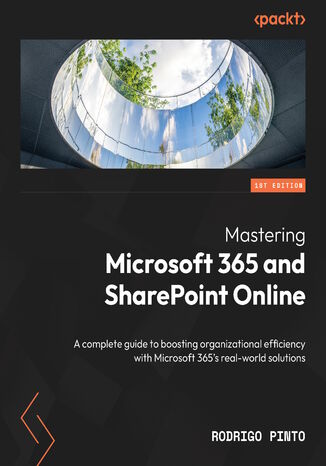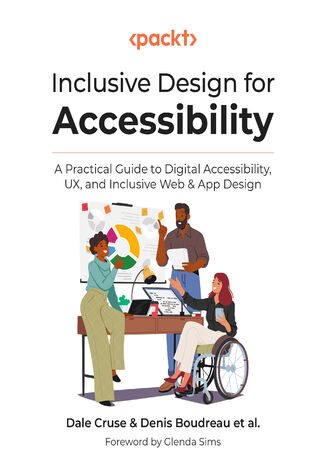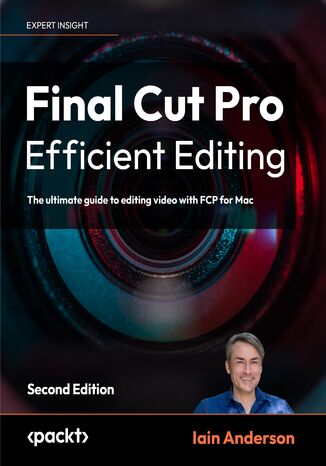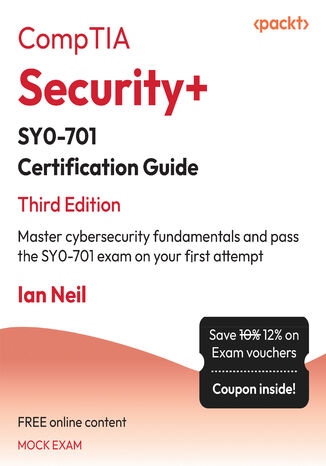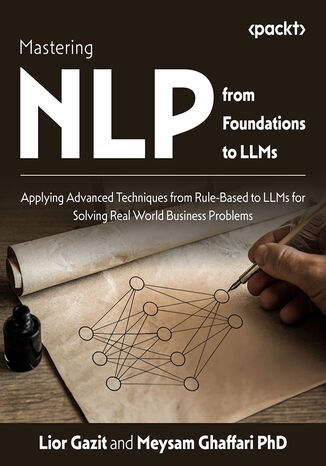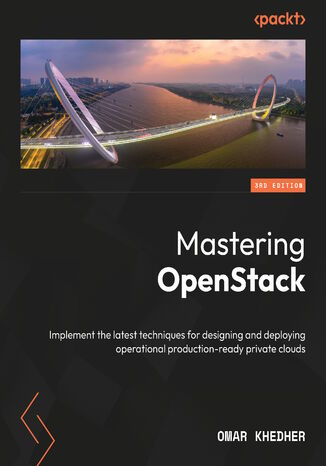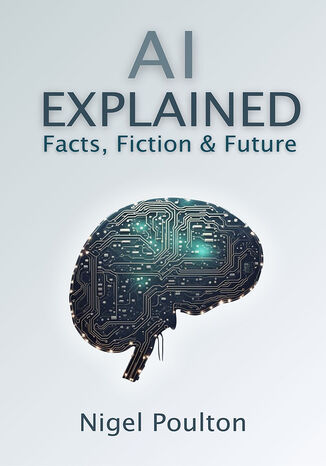Kategorien
-
- Bitcoin
- Geschäftsfrau
- Coaching
- Controlling
- E-Business
- Ökonomie
- Finanzen
- Börse und Investitionen
- Persönliche Kompetenzen
- Computer im Büro
- Kommunikation und Verhandlungen
- Kleines Unternehmen
- Marketing
- Motivation
- Multimedia-Training
- Immobilien
- Überzeugung und NLP
- Steuern
- Sozialpolitik
- Handbȕcher
- Präsentationen
- Führung
- Public Relation
- Berichte, Analysen
- Geheimnis
- Social Media
- Verkauf
- Start-up
- Ihre Karriere
- Management
- Projektmanagement
- Personal (HR)
-
- Architektura i wnętrza
- Sicherheit und Gesundheit am Arbeitsplatz
- Biznes i Ekonomia
- Haus und Garten
- E-Business
- Ekonomia i finanse
- Esoterik
- Finanzen
- Persönliche Finanzen
- Unternehmen
- Fotografie
- Informatik
- HR und Gehaltsabrechnung
- Frauen
- Computer, Excel
- Buchhaltung
- Kultur und Literatur
- Wissenschaftlich und akademisch
- Umweltschutz
- meinungsbildend
- Bildung
- Steuern
- Reisen
- Psychologie
- Religion
- Landwirtschaft
- Buch- und Pressemarkt
- Transport und Spedition
- Gesundheit und Schönheit
-
- Office-Programme
- Datenbank
- Bioinformatik
- IT Branche
- CAD/CAM
- Digital Lifestyle
- DTP
- Elektronik
- Digitale Fotografie
- Computergrafik
- Spiele
- Hacking
- Hardware
- IT w ekonomii
- Wissenschaftliche Pakete
- Schulbücher
- Computergrundlagen
- Programmierung
- Mobile-Programmierung
- Internet-Server
- Computernetzwerke
- Start-up
- Betriebssysteme
- Künstliche Inteligenz
- Technik für Kinder
- Webmaster
-
- Anthologien
- Ballade
- Biografien und Autobiografien
- Für Erwachsene
- Drama
- Tagebücher, Memoiren, Briefe
- Epos
- Essay
- Science Fiction
- Felietonys
- Fiktion
- Humor, Satire
- Andere
- Klassisch
- Krimi
- Sachbücher
- Belletristik
- Mity i legendy
- Nobelpreisträger
- Kurzgeschichten
- Gesellschaftlich
- Okultyzm i magia
- Erzählung
- Erinnerungen
- Reisen
- Gedicht
- Poesie
- Politik
- Populärwissenschaftlich
- Roman
- Historischer Roman
- Prosa
- Abenteuer
- Journalismus
- Reportage
- Romans i literatura obyczajowa
- Sensation
- Thriller, Horror
- Interviews und Erinnerungen
-
- Archäologie
- Bibliotekoznawstwo
- Filmwissenschaft
- Philologie
- Polnische Philologie
- Philosophie
- Finanse i bankowość
- Erdkunde
- Wirtschaft
- Handel. Weltwirtschaft
- Geschichte und Archäologie
- Kunst- und Architekturgeschichte
- Kulturwissenschaft
- Linguistik
- Literaturwissenschaft
- Logistik
- Mathematik
- Medizin
- Geisteswissenschaften
- Pädagogik
- Lehrmittel
- Populärwissenschaftlich
- Andere
- Psychologie
- Soziologie
- Theatrologie
- Teologie
- Theorien und Wirtschaftswissenschaften
- Transport i spedycja
- Sportunterricht
- Zarządzanie i marketing
-
- Sicherheit und Gesundheit am Arbeitsplatz
- Geschichte
- Verkehrsregeln. Führerschein
- Rechtswissenschaften
- Gesundheitswesen
- Allgemeines. Wissenskompendium
- akademische Bücher
- Andere
- Bau- und Wohnungsrecht
- Zivilrecht
- Finanzrecht
- Wirtschaftsrecht
- Wirtschafts- und Handelsrecht
- Strafrecht
- Strafrecht. Kriminelle Taten. Kriminologie
- Internationales Recht
- Internationales und ausländisches Recht
- Gesundheitsschutzgesetz
- Bildungsrecht
- Steuerrecht
- Arbeits- und Sozialversicherungsrecht
- Öffentliches, Verfassungs- und Verwaltungsrecht
- Familien- und Vormundschaftsrecht
- Agrarrecht
- Sozialrecht, Arbeitsrecht
- EU-Recht
- Industrie
- Agrar- und Umweltschutz
- Wörterbücher und Enzyklopädien
- Öffentliche Auftragsvergabe
- Management
-
- Afrika
- Alben
- Südamerika
- Mittel- und Nordamerika
- Australien, Neuseeland, Ozeanien
- Österreich
- Asien
- Balkan
- Naher Osten
- Bulgarien
- China
- Kroatien
- Tschechische Republik
- Dänemark
- Ägypten
- Estland
- Europa
- Frankreich
- Berge
- Griechenland
- Spanien
- Niederlande
- Island
- Litauen
- Lettland
- Mapy, Plany miast, Atlasy
- Miniführer
- Deutschland
- Norwegen
- Aktive Reisen
- Polen
- Portugal
- Andere
- Przewodniki po hotelach i restauracjach
- Russland
- Rumänien
- Slowakei
- Slowenien
- Schweiz
- Schweden
- Welt
- Türkei
- Ukraine
- Ungarn
- Großbritannien
- Italien
-
- Lebensphilosophien
- Kompetencje psychospołeczne
- zwischenmenschliche Kommunikation
- Mindfulness
- Allgemeines
- Überzeugung und NLP
- Akademische Psychologie
- Psychologie von Seele und Geist
- Arbeitspsychologie
- Relacje i związki
- Elternschafts- und Kinderpsychologie
- Problemlösung
- Intellektuelle Entwicklung
- Geheimnis
- Sexualität
- Verführung
- Aussehen ind Image
- Lebensphilosophien
-
- Bitcoin
- Geschäftsfrau
- Coaching
- Controlling
- E-Business
- Ökonomie
- Finanzen
- Börse und Investitionen
- Persönliche Kompetenzen
- Kommunikation und Verhandlungen
- Kleines Unternehmen
- Marketing
- Motivation
- Immobilien
- Überzeugung und NLP
- Steuern
- Sozialpolitik
- Handbȕcher
- Präsentationen
- Führung
- Public Relation
- Geheimnis
- Social Media
- Verkauf
- Start-up
- Ihre Karriere
- Management
- Projektmanagement
- Personal (HR)
-
- Anthologien
- Ballade
- Biografien und Autobiografien
- Für Erwachsene
- Drama
- Tagebücher, Memoiren, Briefe
- Epos
- Essay
- Science Fiction
- Felietonys
- Fiktion
- Humor, Satire
- Andere
- Klassisch
- Krimi
- Sachbücher
- Belletristik
- Mity i legendy
- Nobelpreisträger
- Kurzgeschichten
- Gesellschaftlich
- Okultyzm i magia
- Erzählung
- Erinnerungen
- Reisen
- Poesie
- Politik
- Populärwissenschaftlich
- Roman
- Historischer Roman
- Prosa
- Abenteuer
- Journalismus
- Reportage
- Romans i literatura obyczajowa
- Sensation
- Thriller, Horror
- Interviews und Erinnerungen
-
- Archäologie
- Philosophie
- Wirtschaft
- Handel. Weltwirtschaft
- Geschichte und Archäologie
- Kunst- und Architekturgeschichte
- Kulturwissenschaft
- Literaturwissenschaft
- Mathematik
- Medizin
- Geisteswissenschaften
- Pädagogik
- Lehrmittel
- Populärwissenschaftlich
- Andere
- Psychologie
- Soziologie
- Teologie
- Zarządzanie i marketing
-
- Lebensphilosophien
- zwischenmenschliche Kommunikation
- Mindfulness
- Allgemeines
- Überzeugung und NLP
- Akademische Psychologie
- Psychologie von Seele und Geist
- Arbeitspsychologie
- Relacje i związki
- Elternschafts- und Kinderpsychologie
- Problemlösung
- Intellektuelle Entwicklung
- Geheimnis
- Sexualität
- Verführung
- Aussehen ind Image
- Lebensphilosophien
Mastering Microsoft 365 and SharePoint Online is an essential guide for businesses aiming to optimize operations and maintain a competitive edge. This comprehensive resource provides a systematic roadmap for navigating the complexities of Microsoft 365 and SharePoint Online, guided by enterprise architect and Microsoft 365 MVP Rodrigo Pinto, who is renowned for his innovative productivity-enhancing development strategies.Through real-world examples and expert insights, you'll learn how to create efficient workflows, manage user access, implement robust security measures, and leverage automation to streamline your processes. You’ll get to grips with using Power Automate, Power Apps, and Power BI to automate repetitive tasks, build custom applications, and visualize your data. This book focuses on SharePoint Online's role in document management and team collaboration, covering structure planning, processes, automation, implementing robust security measures, and maintaining compliance aligned with your business needs. It also provides strategies and case studies for migrating to Microsoft 365 and SharePoint Online and explores future trends and useful tips on implementation, collaboration, DevOps, Microsoft 365 development, and IT management.By the end of this book, you’ll acquire the necessary skills to maximize productivity, collaboration, and efficiency in your digital workspace.
Dale Cruse, Denis Boudreau, Glenda Sims
Despite our growing reliance on digital technology, millions of users are still excluded from fully engaging with websites, apps, and digital services because nobody thought to design for them. Inclusive Design for Accessibility challenges you to rethink how you build digital experiences, offering the tools and guidance needed to move beyond compliance and create experiences that work for everyone.With contributions from twelve accessibility leaders—Dale Cruse, Denis Boudreau, Dr. Angela Young, Maya Sellon, Julianna Rowsell, Nandita Gupta, Jennifer Chadwick, Crystal Scott, Chris McMeeking, Dr. Keith Newton, Charlie Triplett, and Kai Wong—this book lays out the fundamentals of inclusive design and its application in advanced and emerging technologies. You'll discover practical strategies and real-world examples that show you how to embed accessibility into projects, from user research and testing to creating accessible websites and mobile apps. You’ll also focus on how AI can enhance accessibility and learn to tackle the challenges posed by VR and AR.For designers, developers, product managers, and business leaders, this book will reshape how you approach inclusive design, helping you move beyond ticking boxes toward building digital products that don't leave anyone behind.
Building a successful real-time strategy game is challenging, because of both the complex mechanics and the need to strike a balance between different elements, ensuring that players enjoy creating and executing strategies against the game's AI.Creating an RTS Game in Unity 2023 will teach you how to install and set up the Unity game engine, create a new 3D project, and build a level editor to make it easier to modify and add maps to a game. The RTS game will start to take shape while you learn to implement different core systems such as melee and ranged battles, unit spawners, camera controls, dynamic mapping generation, basic enemy AI, and the pathfinder algorithm. You'll also get to grips with implementing command units to perform actions, crafting and producing resources, basic physics and collision detection, and building an RTS game from scratch using C# and the latest features of the Unity game engine.By the end of this book, you’ll be able to make professional and high-quality end-to-end RTS games using the best practices and techniques from the gaming industry.
Elevate your video editing skills with Final Cut Pro 11 using practical workflows, expert techniques, and the latest features to enhance your creative process and give your videos a stunning look.The second edition of this comprehensive guide covers exciting new features in FCP, teaching you how to streamline your workflow with customizable workspaces, shortcuts, and advanced trimming tools. Explore impactful titles and a comprehensive suite of visual effects in Final Cut Pro for dynamic videos, discover Final Cut Pro's audio tools to create a great-sounding mix, and utilize the magnetic timeline, multicam editing, and enhanced color correction for every project.Whether you're creating content for social media, YouTube, or Hollywood, Final Cut Pro Efficient Editing, Second Edition will help you take your video editing skills to the next level.
Building on the success of its international bestselling predecessor, this third edition of the CompTIA Security+ SY0-701 Certification Guide serves as your one-stop resource for Security+ exam preparation. Written by cybersecurity expert Ian Neil, this comprehensive guide helps you unlock the intricacies of cybersecurity and understand the technology behind the CompTIA Security+ SY0-701 certification, ensuring you approach the exam with confidence and pass on your first attempt.By exploring security in detail, this book introduces essential principles, controls, and best practices. The chapters are meticulously designed to provide 100% coverage of the CompTIA Security+ SY0-701 exam objectives, ensuring you have the most up-to-date and relevant study material. By mastering cybersecurity fundamentals, you’ll acquire the knowledge and skills to identify and mitigate threats, manage vulnerabilities, and safeguard enterprise infrastructure. Additionally, the book grants lifetime access to web-based exam prep tools, including 3 full-length mock exams, flashcards, acronyms, along with a 12% Security+ exam discount voucher.Whether you aim to excel the CompTIA Security+ SY0-701 exam, advance your career in cybersecurity, or enhance your existing knowledge, this book will transform you into a cybersecurity expert.
Lior Gazit, Meysam Ghaffari, Asha Saxena
Do you want to master Natural Language Processing (NLP) but don’t know where to begin? This book will give you the right head start. Written by leaders in machine learning and NLP, Mastering NLP from Foundations to LLMs provides an in-depth introduction to techniques. Starting with the mathematical foundations of machine learning (ML), you’ll gradually progress to advanced NLP applications such as large language models (LLMs) and AI applications. You’ll get to grips with linear algebra, optimization, probability, and statistics, which are essential for understanding and implementing machine learning and NLP algorithms. You’ll also explore general machine learning techniques and find out how they relate to NLP. Next, you’ll learn how to preprocess text data, explore methods for cleaning and preparing text for analysis, and understand how to do text classification. You’ll get all of this and more along with complete Python code samples.By the end of the book, the advanced topics of LLMs’ theory, design, and applications will be discussed along with the future trends in NLP, which will feature expert opinions. You’ll also get to strengthen your practical skills by working on sample real-world NLP business problems and solutions.
OpenStack provides flexibility and control for designing and deploying robust and scalable cloud infrastructures, which has led to it having one of the largest open source communities in the cloud market. This book delves deep into the OpenStack architecture, dissecting each component to guide you in architecting your cloud with precision. From essential components to cutting-edge services, this book offers a step-by step approach, ensuring you grasp the fundamentals before exploring the latest advancements.This updated edition guides you through the deployment process, integrating secure best practices inspired by the DevSecOps philosophy. You’ll also explore the Antelope release, covering new services such as container management and software-defined networking (SDN). The book outlines best practices for running and managing fault-tolerant, secure, monitored, and high-performing setups. In the last part, it navigates the convergence of public and private clouds, covering hybrid models through use cases of managing Kubernetes-based applications in OpenStack private and public clouds.By the end of the book, you’ll be well versed in the latest OpenStack advancements, ready to lead your organization on a successful cloud journey.
AI Explained. Uncovering the Reality, Risks, and Rewards of Artificial Intelligence
This book leads readers on a comprehensive journey through artificial intelligence, beginning with an introduction to its foundational concepts. Early on, readers are guided through what AI is and why it’s becoming a transformative force in today’s world. They’ll then explore the technical processes behind AI creation, learning how data and algorithms power intelligent systems, making complex technology accessible and understandable.Further on, the book delves into practical applications and ethical considerations. Readers discover the positive ways AI is improving our lives, from breakthroughs in healthcare to innovations in everyday industries. Following this, it presents a balanced view of AI’s potential risks, discussing the ethical concerns and societal challenges that arise with misuse, encouraging thoughtful reflection on AI’s impact.Towards the end, the book tackles critical future challenges and solutions. It discusses the threat of rogue AI behaviors and highlights strategies to prevent AI from acting unpredictably. The final section offers an optimistic outlook on the responsible development of AI, encouraging readers to envision a future where AI can drive positive change. By journey’s end, readers will feel equipped with a nuanced understanding of AI, its real-world significance, and its ethical implications.

